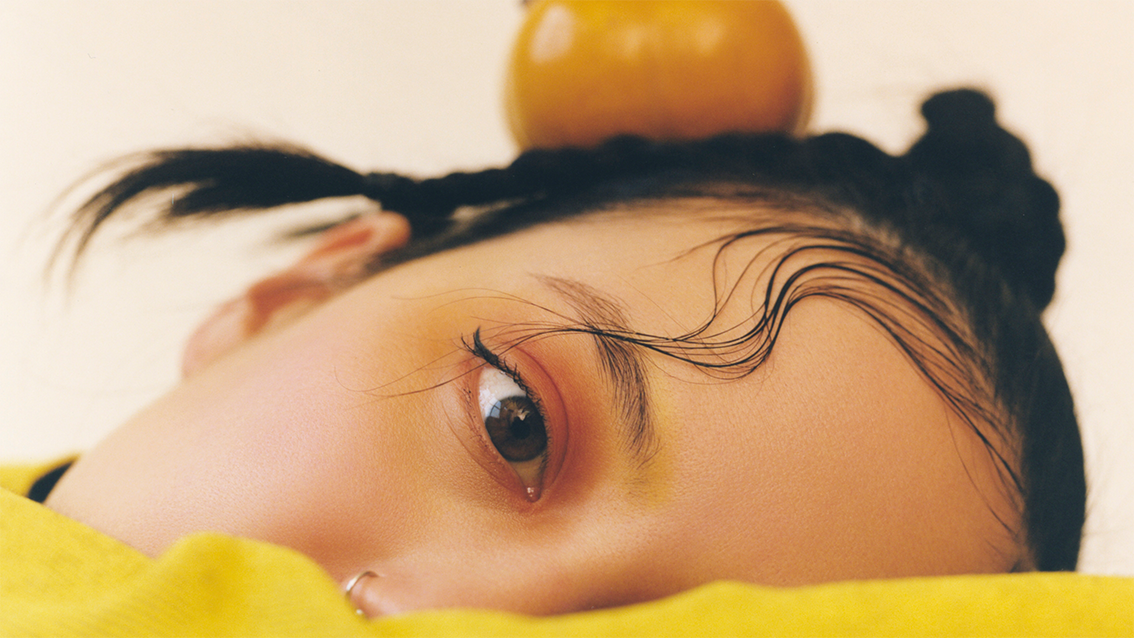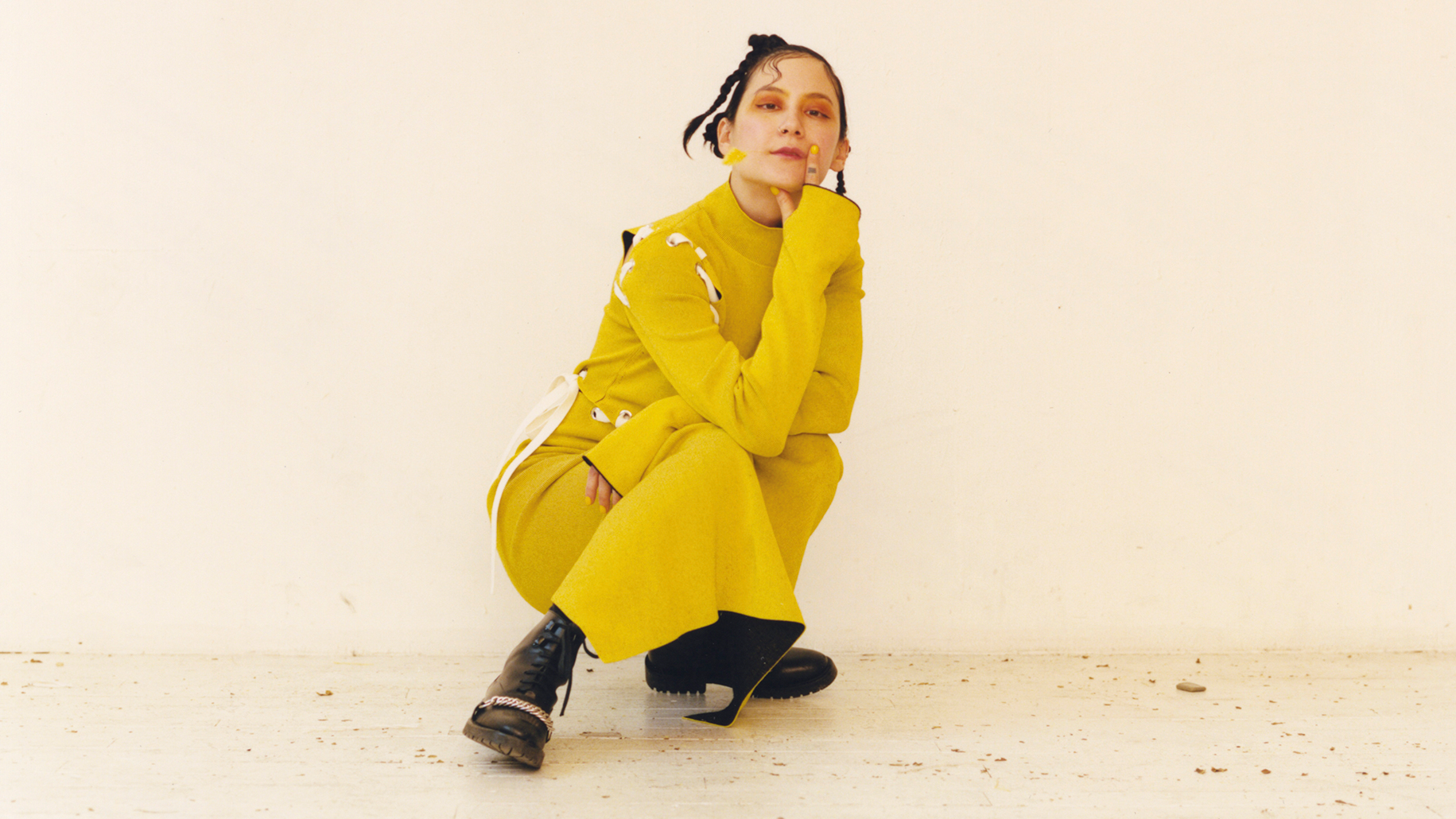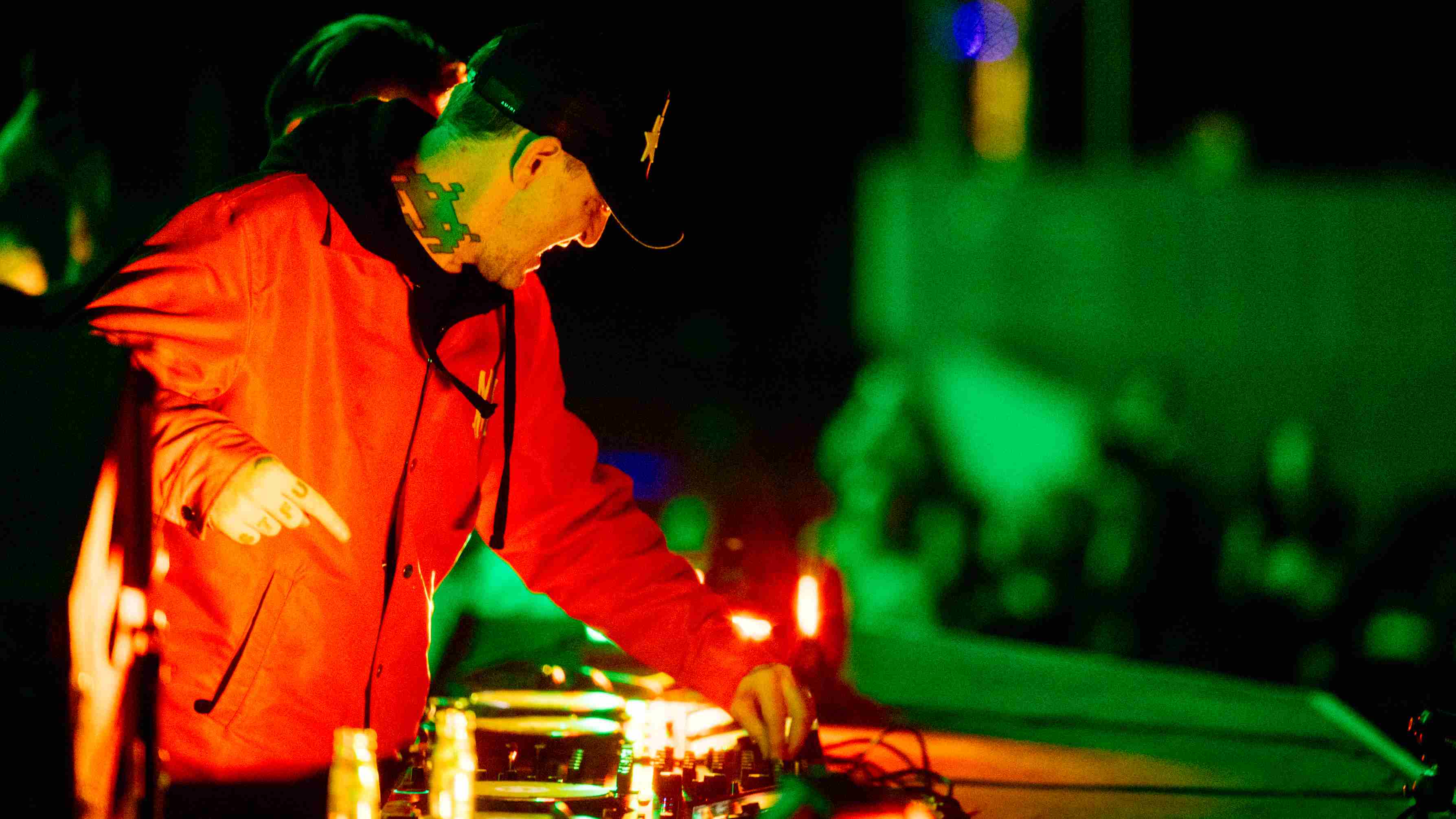Japanese Breakfast: "I realised that I never want to do this DIY shit again, I’ve hit the ceiling with that"
Moving beyond the grief-stricken narrative woven into Michelle Zauner’s past Japanese Breakfast records, new album Jubilee strikes a more celebratory tone

Japanese Breakfast singer/songwriter Michelle Zauner has much to celebrate. Recently topping the New York Times Best Seller list with her memoir Crying in H Mart, completing her third Japanese Breakfast album, Jubilee, and the soundtrack to the open world exploration video game, Sable, all three projects showcase her rapidly ascending talent.
While Zauner’s lyrical observations defined the pain and suffering of losing her mother to cancer in 2014, her reputation for writing devastatingly catchy songs blotted with thorny narratives has grown from album to album. With Zauner focused on stretching her songwriting capabilities to the max, Jubilee details her fight for contentment and continued studio evolution.

Why did the word Jubilee come to mind as a title for the album?
“For a long time I’ve wanted to move away from themes of grief and loss. I felt that Psychopomp was my grief album but I didn’t think that I was ready to move on with Soft Sounds from Another Planet and had to write an entire book about that experience in order to really feel like I’d closed the chapter.
"With Jubilee I had a natural interest to write about something on the opposite end of human experience – a real celebration of release and joy, which is in some ways an unexpected theme for the indie rock genre in general.”
Would you say that, lyrically, you’re projecting more on this record?
“My records in general are more of a mixed bag than people allow them to be. On Soft Sounds there’s a song called Machinist that’s about falling in love with a robot – that’s pretty fictional, and there’s a song on Psychopomp called Triple 7 that’s about slot machines and sex workers.
Get the MusicRadar Newsletter
Want all the hottest music and gear news, reviews, deals, features and more, direct to your inbox? Sign up here.
It’s a great trick to entice someone with the music and knock them on the ass with the lyrics
"One thing that I really love about making records is that you can flow through fiction and non-fiction but, ultimately, everything’s a commentary on real life in some way. Even a song about falling in love with a robot is really about the different ways that people connect to one another.”
While the subject matter of your songs often necessitates a sombre tone, the music is typically the complete opposite…
“That’s definitely become a Japanese Breakfast calling card. If you need to have some lightness to balance how heavy the lyrical themes can be, then both are more impactful when they’re unexpectedly working towards each other. It’s a great trick to entice someone with the music and knock them on the ass with the lyrics.”
Can you listen to your own music as other people would or is that not possible being so close to the production?
“I feel the same about most art, that it’s not interesting to me if it’s not useful [laughs]. But I love listening to my own songs and I know they’re working well if I’m not thinking too much about them technically.
"There are some things on Jubilee where I do think the guitar is too loud or I wish we’d EQed something differently, but for the most part I just want to feel a rush of emotion and try to experience it the way that I hope everyone else is.”
You’ve probably forgotten but in 2018 you mentioned your third album would be influenced by Nine Inch Nails. You obviously had a change of heart?
“I definitely didn’t forget that. I wanted to make an album that sounded like Nine Inch Nails meets Björk’s Homogenic but every time I come up with an idea like that I quickly feel very claustrophobic.
I wanted to make an album that sounded like Nine Inch Nails meets Björk’s Homogenic
"You’d have to be a pretty advanced musician to come up with that record and I don’t really make that type of music even though I want to. Ultimately, I just have to make the type of music that comes naturally to me.”
They say that, for third albums, artists feel compelled to shake things up. How did you approach Jubilee from that perspective?
“I definitely thought about that a lot in terms of my discography and how the records sit next to one another. Soft Sounds was really hard for me. I was petrified of the ‘sophomore slump’ so I created an environment to best combat that self-doubt and feelings that my first album was a real fluke.
"The third album was slightly easier because I had this confidence that it wasn’t a fluke and that I should know what I’m doing and flex every muscle, but there were certain things that I did do to kind of disrupt my writing patterns.”
What tactics did you employ?
“Initially, I pushed myself away from my co-producer Craig Hendrix because I needed to go out and explore working with other people. I worked on production with Jack Tatum from Wild Nothing and Ryan Galloway from Crying, demoed out a lot more stuff and started arranging before I even went into the studio with Craig.
"For the first time I took some guitar lessons and started writing string and horn arrangements so I could push things forward and experiment with a bigger sonic palette.”
You also learned music theory and piano. From that, did you immediately notice a change in your songwriting technique?
“I’ve been wilfully ignorant of music theory for a long time and still don’t know much about it, but learning that definitely expanded my ability to incorporate more interesting chord changes like minor fourth chords. When you’re used to writing on guitar all the time, you lean heavily on specific chord shapes, so disrupting that was interesting to me.
I’ve been wilfully ignorant of music theory for a long time
"I started playing piano when I was five but never really enjoyed it; I’m just trying to write songs from different starting points. With Slide Tackle I built the beat and started with the bass, which is something I don’t do often but in that case felt I was able to create a different type of song.
"Paprika started on the piano – actually I was just drawing MIDI chords and arranging them in Ableton and turning all of those into analogue instruments. Tactics was written on piano too.”
Although Craig Hendrix came into the process a little further down the road this time, how does he help you realise your ideas?
“He was still incredibly instrumental to this record. I’m not as creative a player because Craig’s a better musician than me, so sometimes I’ll lean on him to play a part instead of pushing myself to learn it.
"With Jubilee, I just wanted to make sure I had time to express all the ideas that I had and bring them into the studio once I’d exhausted them.”
Did you mix the album with Craig?
“Jorge Elbrecht mixed Jubilee and there are certain liberties that he now feels more comfortable taking. For example, on Slide Tackle he added a percussive element that made the song a lot better, which is not something a mix engineer usually does.
"When it comes to mixing I find it’s really helpful to use someone that doesn’t know what went into the recording process to come in with a fresh perspective and take things to a new height. It’s basically like having an editor.
"When you write a book the editor has no idea how long a certain sentence took, but if it’s not working, it’s not working and needs to come out. Perspective is the greatest tool in any art-making, so bringing people in with a fresh perspective is crucial.”
Now I realise the value of using a more expensive studio because a certain space and environment does make a big sonic difference
Are you working from your own home studio?
“I kind of do, but my studio’s not really outfitted with a lot of preamp studio gear. I have a Yamaha DX-7, Roland Juno-106, a Korg Minilogue, Yamaha piano and a Rhodes, so it’s mostly just keyboards and some guitar stuff. A lot of what I do at home is mostly MIDI and then I bring it in and we make it analogue.
"For Paprika I used lots of plugins for writing the synth parts, horn and string arrangements and brought them into the studio to work on with Craig. I also used plugins for the marching band snare, but then we had to record eight toms, bass drums and cymbals to make it sound real and not be cheating [laughs].
"Craig has a warehouse studio called The Well that we recorded Soft Sounds and Jubilee in and I went to a place called Spice House Sound in Philadelphia to record the strings.”
Did you find that recording live instruments in a more professional studio environment made a big difference?
“After doing a couple of tracks at Spice House Sound for the Sable soundtrack that’s coming out in September I realised that I never want to do this DIY shit again because I feel like I’ve hit the ceiling with that.
"For instance, I comped a vocal take for a song called Better the Mask on the Sable soundtrack and did eight to ten vocal takes on my Shure SM7 and Apollo Twin because I thought it was great that I didn’t have to pay a studio to get all these different performances and that the performance is ultimately the most important thing.
"So I comped the track and went to Spice House Sound to record piano, strings and do a scratch vocal on their vintage Neumann mic using all their fancy preamps and that take was so much better than the comped version. Now I realise the value of using a more expensive studio because a certain space and environment does make a big sonic difference.”
Do you need to know what a song’s about before you start writing it?
“Typically I’ll have a line in a notebook that’s pretty evocative and then I’ll come up with a chord progression that evokes that feeling. The combination of those things leads me to find out what the song’s about and then they just kind of borrow from each other.
"With Paprika, the arrangement really lent itself to the song, which was kind of a new experience for me, so I don’t think I need to know what a song is about before writing it.”
Paprika is certainly a career highlight, although we understand you fought not to have it chosen as a single?
“It’s a great song but I loved the idea of it being a surprise opener. I don’t think people like it when the first two songs on a record are singles and we already knew Be Sweet was going to be one. Paprika sets a tone and for people entering the album not knowing it exists is hopefully exciting for them.”
You switched from FL Studio to Ableton Live and have more synths in your home setup, but how are you finding the balance between using software and hardware these days?
“There is a really lazy part of me that prefers working in the box. It’s so interesting to find a chord, drag it around and make things up – it actually opens me up creatively so I feel more comfortable being an in-the-box producer.
It’s comforting to know that some of my favourite artists like The Spirit of the Beehive and Alex G don’t necessarily use really expensive gear; they're just innovators
"It’s just really expensive to record out of the box and in-the-box is so versatile and the plugins sound so good and are getting so powerful. After writing the Sable soundtrack I’d rather just go to a studio and work with an engineer who has loads of outboard gear so I don’t feel I need to learn about that stuff as much.
"It’s comforting to know that some of my favourite artists like The Spirit of the Beehive and Alex G don’t necessarily use really expensive gear; they’re just innovators who are able to make something sound great out of a Crate amp.”
You mentioned using lots of strings, horns and brass on Jubilee. What soft synths did you initially use for the demos?
“When I was working on the Sable project I got an Albion Spitfire library that sounded so great. Just having access to that sonic palette enabled me to hear what it would be like to throw a string quartet on there, and once you’ve written the part it’s easy enough to get it performed by a real quartet.
"What I didn’t realise is that when you use MIDI and plugin libraries everything sounds so full because they’re samples of a full orchestra recorded in the perfect room with the perfect mics and preamps, but when you have three string players in a room you suddenly realise that you have to layer it eight times to get that same density, which is nerve-wracking because it doesn’t sound as full as when you played it on a MIDI keyboard.
"It was an even harder adjustment getting used to how thin the real horns sounded after getting accustomed to how they sounded on the demo. Ultimately, it’s much better to have real players, but the majority of people probably wouldn’t even know.”
Are you still using Native Instruments’ Maschine to help with your beat-making?
“I was introduced to Maschine through an interview I did with my friend Lorely Rodriguez of Empress Of. I thought if I got this I’d be able to write beats like Lorely and then I found out that Lena Raine, who wrote the Celeste soundtrack, uses the Massive library so I started using that a lot more for the Sable soundtrack and those plugins then started trickling their way into Jubilee.
"I mostly used Maschine for a song called Essentially a couple of years ago but because it comes with a library and Kontakt I prefer to use the plugins now rather than the hardware.”
Tell us about the Sable soundtrack.
“It’s an open world exploration game, similar to Breath of the Wild or Journey. You play as a young girl called Sable who explores this desert planet – there’s no combat. I’ve been working on it for the last three of four years with a team called Shedworks.
"The developers are based in London and have an architecture background, so a lot of the architectures in the game are really beautiful.”
Writing for that was presumably a very different experience to making a traditional album…?
“I was really nervous about it as it was the first large project that I was the sole producer/composer/arranger for, but I was really inspired by Ryuichi Sakamoto’s Async, Cornelius, Joe Hisaishi and even Alan Menken who does a lot of Disney soundtracks.
"It was fun to write all these long ambient tracks for different areas of the game with different themes for different characters. There are three tracks with vocals and lyrics and the other 30 are ambient. It was a way to challenge myself and I’ve learned so much about production from that experience. It’s all my own work too, so I’m really proud of it.”


“A fabulous trip through all eight songs by 24 wonderful artists and remixers... way beyond anything I could have hoped for”: Robert Smith announces new Cure remix album
“He knows what I'm thinking and feeling before I even know it": Billie Eilish suggests that she and brother Finneas can read each other's minds









